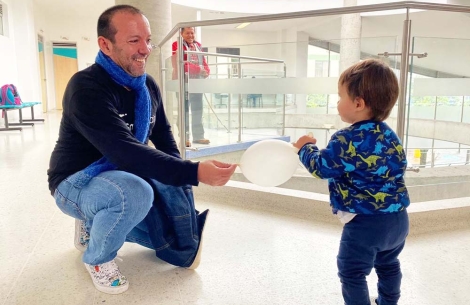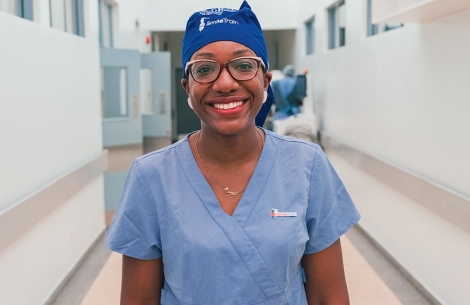Sara Horne Improves Speaking, Hearing, and Confidence
Why non-surgical care is vital to the cleft journey
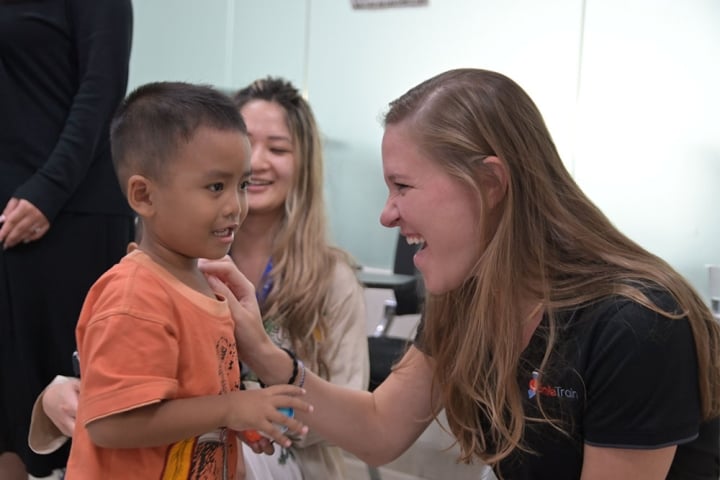
Recognizing the critical role that speech and hearing play in cleft care, in 2021, Sara Horne, CCC-SLP, was hired as Smile Train’s first Director of Global Speech and Hearing Programs. Now, as Director of Education & Training, she also leads our initiatives to build the capacity of cleft professionals — putting her at the forefront of improving the standard of cleft care around the globe.
To celebrate National Speech-Language-Hearing Month, we caught up with her to learn more about how she came to specialize in cleft speech therapy, the state of the cutting-edge programs she manages, why they are so crucial for our patients, her vision for the future of non-surgical cleft care, and much more.
What made you want to be a speech therapist?
I have five younger brothers. I've always loved interacting with kids. But I didn't necessarily want to be a teacher or a pediatrician, so I shadowed a speech pathologist while I was an undergrad at the University of Florida and really fell in love with the one-on-one aspect and getting to work with patients long-term. A speech therapist gets to know patients and their families, and I really liked that relationship-building aspect.
I also think that the interdisciplinary aspect of working on a cleft team is just super unique. It's such a collaborative environment, being at the table with surgeons and social workers and orthodontists, seeing patients receive the comprehensive treatment that they need from birth through adulthood.
How did you start working with children with clefts?
I don't have any personal connection to clefts. I gained that exposure as a grad student at Teachers College, Columbia University through working with one of my professors, Dr. Catherine Crowley, who is also on Smile Train’s Medical Advisory Board. After graduating, I got a position with the cleft and craniofacial team at Joe DiMaggio Children's Hospital in South Florida, where I was able to solidify my skills.
What is a typical day at this job like?
I'll speak primarily to speech here, but the same thing applies to the psychosocial and hearing programs I oversee, too. I review the grant proposals that come in from all of our programs around the world and make sure the treatment strategies are research-based and that everything they're doing aligns with our strict quality standards. I also work closely with our international staff to give feedback on grant proposals and help partners submit their clinical reporting in Smile Train Express (Smile Train’s proprietary patient database).
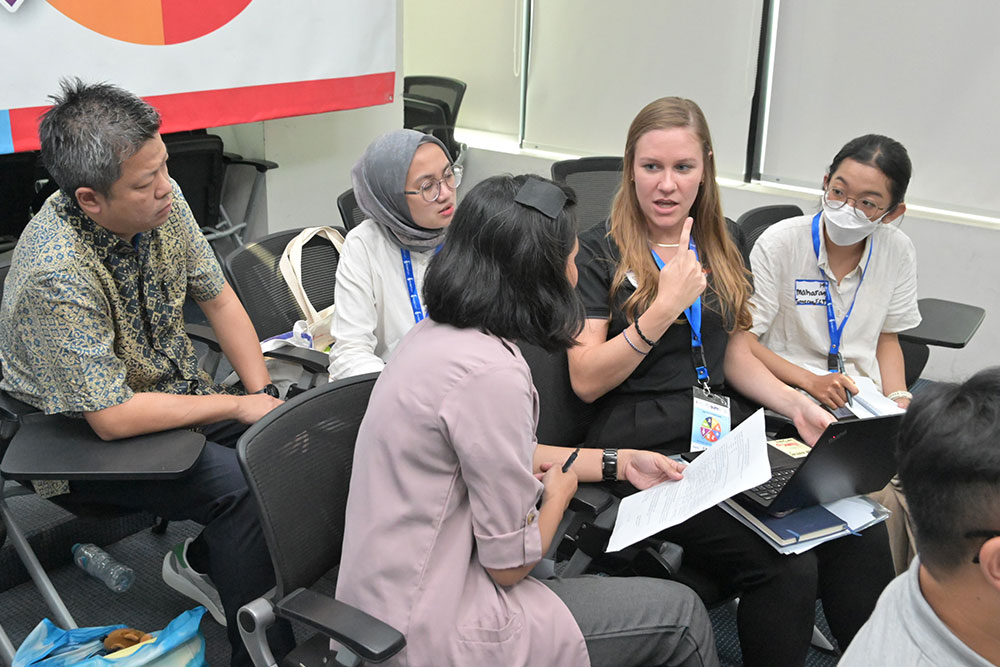
I also use Smile Train Express and our medical professionals database to make sure that our patient records are uploaded consistently and accurately. In particular, I review the speech sample video recordings that our partners are required to upload to ensure that our patients are receiving high-quality care and making progress through the treatments that we’re funding.
I'll also support the Development team by sharing details about our speech and hearing programs with donors who are interested in supporting them.
And, lastly, I lead the larger organizational strategy for our speech and hearing programs. I think a lot about the future of these programs, how we can evolve them, how we can make our quality assurance and other processes more efficient, and how we can make our donors’ funds go further.
What's your overall vision for the programs that you oversee?
I want to continue my focus on improving our systems and data collection to know more about the impact that we're making and areas where we can improve.
I am also looking to expand our education and training initiatives even further because they are the future of our programs — to truly move towards sustainability, we must build local capacity on the ground so that our partners can care for children in need in their own communities well into the future. Education leads to sustainability.
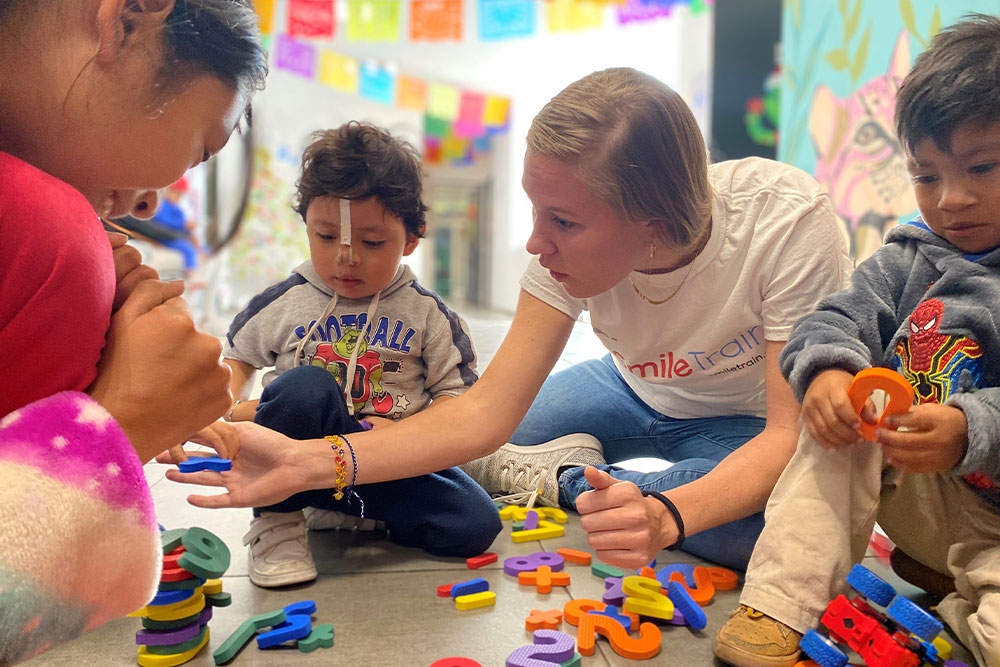
And we must continue to increase accessibility, especially in speech. Speech therapy isn't even an established profession yet in many of the countries where we work. That means we really need to lean into education and training to build capacity for cleft speech care in those places. We’ll do that by leaning into our sustainable model and investing in our partners to make sure that they can serve as a resource for others in the region.
How do you manage or direct programs with practitioners who work in other languages?
All of our educational and programmatic materials are available in local languages. Smile Train’s treatment programs are managed by our locally based program managers, with advisory support from local cleft experts on our regional Medical Advisory Councils. Since I only speak English and a bit of Spanish, I communicate with our local partners through our program managers; having staff on the ground who speak the local dialects and languages is essential for us.
This is a good opportunity to highlight one challenge we face for speech therapy that is not necessarily present in other areas of comprehensive cleft care: An orthodontist can provide care without speaking the local language, but a speech therapist really needs to be familiar with the patient’s language to be effective. So that’s another reason it's so important that we're training those local providers and creating cleft speech therapy materials in local languages and dialects.
What's it like when you see a patient again after a few years and notice their improvement?
When you see little improvements over a longer period, it's hard to see the difference. But looking back at videos or recordings, it’s like, remember when they sounded like this? For me, as the therapist, seeing patients blossom and become a little more confident, too — it’s why we do this work.
If people can’t understand you when you talk, I think it comes to a point where you say to yourself: I don't know why I'm talking. Even if you're four years old, you see that nothing happens when you speak because people don't understand you, and so then you maybe become a bit solitary or withdrawn.
But then you see your patient successfully communicating with their parents, teachers, and other kids, and you see a change in their whole personality and confidence and demeanor… it's a real transformation and shows the true impact of speech therapy for our patients.
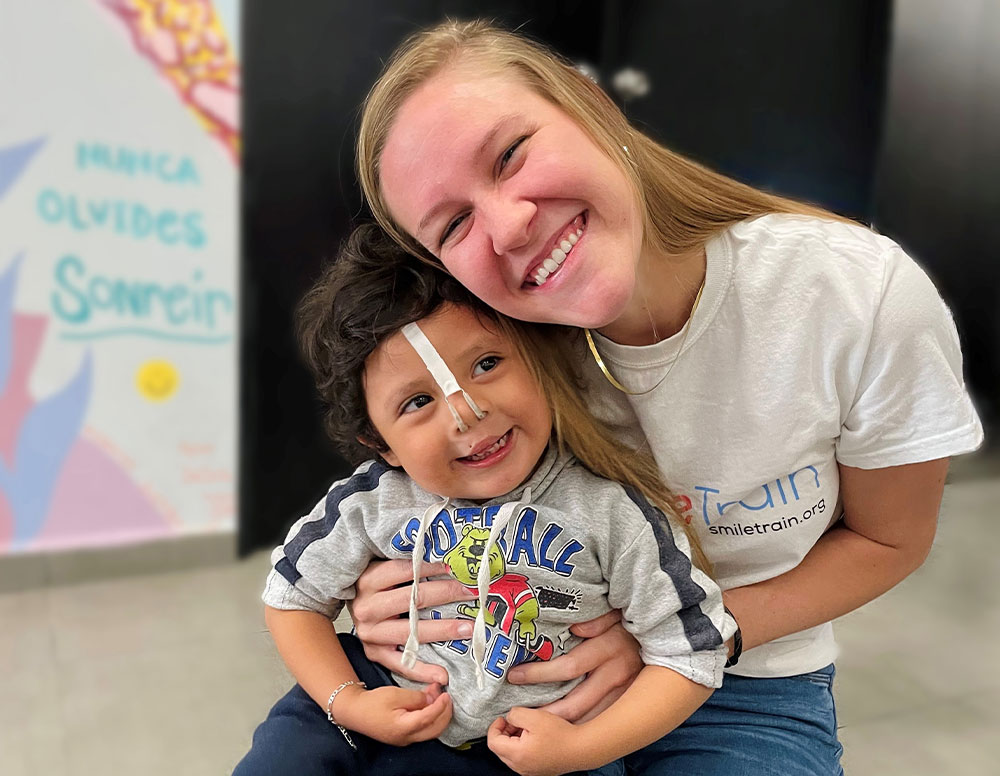
Is there anything else you'd like to say?
Knowing firsthand the impact of the services that we support on the patients and families who receive them makes me particularly passionate and proud of our work. I've spent years in the speech therapy room with patients. I know the investment that families have to make for their child to achieve good outcomes. I also know how thrilled and grateful families are when they hear their child speak clearly, or when they see them finally talking to other kids, teachers, or adults and being understood.
I'm so proud to continue to be part of that through my work at Smile Train.
You can help more children with clefts and their families receive all the care they need to thrive today.


